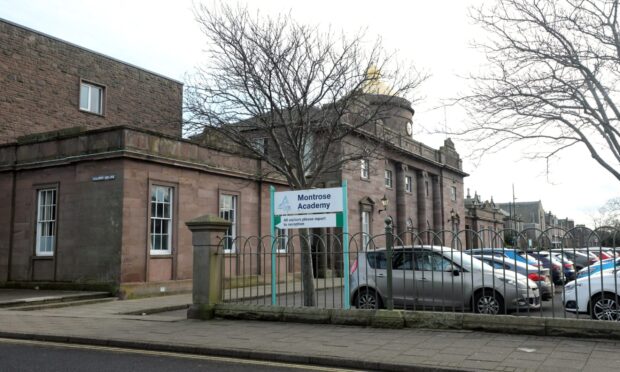Sir, – How can pupils be fairly assessed by teachers and people who have never met them? How can certificates be awarded without a test?
Does the child’s address come into the assessment?
The written test should have been allowed to go ahead in a safe environment.
If I had been assessed rather than examined for my City of Guilds would I have got a first class pass in the Advanced test for electric welding?
I was always last to finish writing in the class as I was a slow writer.
I surprised everyone as I was the only one in my class to get a First. Pupils and parents who are not happy should demand a written test.
John G Phimister.
63 St Clair Street,
Kirkcaldy.
Pupils at mercy of SQA’s statistical models
Sir, – There is much discontent with the way in which school assessments have been carried out in this peculiar year.
Normally, these would have concluded with examinations, but this year coursework and teacher assessments are what has counted – until the Scottish Qualifications Authority intervened.
It is unfortunate that Scottish youngsters do not have the same opportunity as those in England will have to demonstrate their ability in exams.
For decades, there has been criticism of exams, while “continuous assessment” has been favoured.
It is true that exams are a throw of the dice on a specific day when some candidates may be out of sorts for one reason or another.
Yet continuous assessment puts pressure on them over a lengthy period.
And it puts pressure on markers to give good grades because the coursework counts towards the final grade.
This allows little room for getting it wrong first time and then learning from that.
Exams have a variety of advantages.
First, apart from any attempts at impersonation, we know who has done the work, with all candidates under the same controlled conditions.
Who knows how much “help” candidates have had with essays or projects completed at home?
Second, ostensibly paradoxically, markers in national exams do not know who has done the work because the candidates’ names mean nothing to them.
Where candidates are known to markers, their papers can be anonymised.
Third, exams provide a good discipline in being time-limited.
Completing a task in a set time is a transferable skill, appreciated by employers. Fourth, under pressure of time, candidates are required to think on their feet (in a well-constructed exam), which is another transferable skill appreciated by employers.
Instead, this year Scottish pupils are at the mercy of the SQA’s statistical models.
No doubt the SQA has produced an algorithm to guide them.
I’m afraid that my experience of this kind of assessment has not been encouraging.
Jill Stephenson.
Glenlockhart Valley,
Edinburgh.
‘Snowball’s chance’ of rerun
Sir, – We are daily bombarded by the SNP for another referendum on so-called independence, more accurately known as Scotland’s secession from the union.
I wonder what would have happened if the vote had gone the other way and the Yes voters had won.
The No voters could have demanded a rerun of the referendum until they were blue in the face. As far as the SNP was concerned, a majority Yes vote would have been set in stone.
During the referendum campaign, Nicola Sturgeon, in order to encourage Scots to vote her way, announced that this was a once-in-a-lifetime chance.
Although we’re not even into double figures of years yet since the vote, the clamour from the SNP for a repeat referendum is constant.
Snowball’s chance for a repeat if the boot had been on the other foot.
A rerun in the event of a Yes vote? You must be joking!
George K McMillan.
5 Mount Tabor Avenue, Perth.
Easy solution to Tory reshuffle
Sir, – Following the coronation of Douglas Ross so close to the recent visit to his constituency by Boris Johnson and Michael Gove, it would seem he would be impatient to wait until next May to assume complete control of his party in Holyrood.
Likewise, Ruth Davidson must be champing at the bit to take her seat in the House of Lords.
The obvious answer would be for her to resign her position in Holyrood and a by-election flagged up for Mr Ross to “run the line” to take over her seat. I think the voters of Scotland would be more than happy to vote for the appropriate conclusion.
Jim Barrie.
Vernonholme,
Dundee.
Dicing with disaster at port
Sir, – The massive explosion in Beirut brought to mind a situation I observed at the port of Dundee in about 1995 or ’96.
I was employed as an engineer in Aberdeen and a couple of us went down to Dundee to view pipeline fabrication work being conducted by an offshore contractor.
The work was being done in part of an enormous quayside shed where lengths of pipe could be laid out for assembly.
The work area was bounded by yellow safety tape. The work involved open-arc welding.
A short distance away, inside the same shed, there was a mountain of ammonium nitrate fertiliser in sacks.
I looked at my workmate, he looked at me and we proceeded to leave the port as expeditiously as possible.
I am certain we conveyed our concern to the Dundee fire brigade. But the project was not ours and we went on to other work after notifying the experts of the obvious hazard.
Robert Gilchrist.
White Salmon,
Washington State, USA.
Divorced from reality
Sir, – The late John Hume once said that “Ireland is not a romantic dream”, getting at nationalism there.
The same can be said about nationalism here. For too many nationalists, Scotland is a romantic dream – the divorce from reality can be seen.
Unionists are just as Scottish as they are, but have a more realistic view of the world, and Scotland’s place in it.
William Ballantine.
The Quarryknowes,
Dean Road, Bo’ness.










